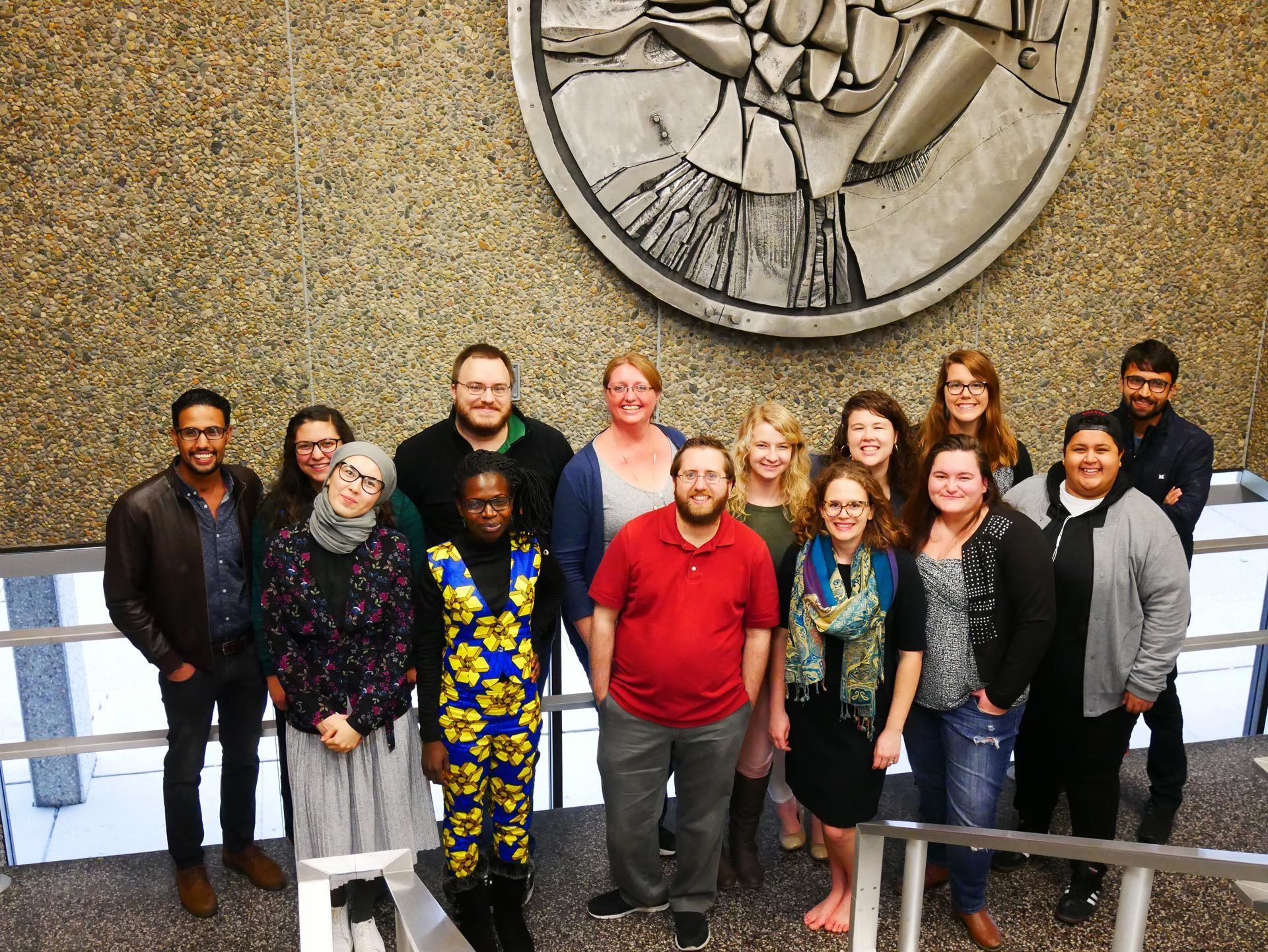Nationally recognized for student experience
The Wall Street Journal

Master of Arts (M.A.)
Cross-Cultural and International Education
Graduate students from around the world choose the master’s program in cross-cultural and international education at Bowling Green State University for its stellar reputation, strong research and global professional networks.
The Master of Arts in Cross-Cultural and International Education (MACIE) empowers students to implement international comparative education strategies abroad and address cross-cultural issues closer to home.
Those who pursue cross-cultural or international education jobs work at the intersection of education, culture and development. They can develop a new curriculum that incorporates different cultural perspectives or advocate for policies that promote educational equity.
BGSU also offers a graduate certificate in international/intercultural communication to meet the increasing need to communicate more effectively in international/intercultural contexts. Coursework provides insight about the nature of international/intercultural communication in the workplace, organizations, and the media.
Program highlights
- Academic, research-oriented program. The BGSU master’s in international education and cross-cultural education prioritizes scholarship and interdisciplinary study. MACIE students regularly present at national and international conferences, publish research in academic journals and receive research and professional grants.
- Classroom experience. About half of MACIE enrollees are international students. The average student-teacher ratio is about 4:1.
- Refine your area of expertise. We encourage you to develop a cognate of three courses that complements your cross-cultural and international education career goals. Cognates can include:
- Gender across cultures
- International development and marginalized populations
- Second language acquisition
- Public policy
- Educational leadership
- Instructional design
- Intercultural communication
- Spanish
- Online, part-time options. Core courses are taught in person on the BGSU campus. But you may take cognate and internship classes online from home – or anywhere in the world.
- MACIE internships. Work and learn in professional environments outside your own cultural perspective – internationally or with an underserved U.S. population. These have included formal schools, education agencies, universities, nonprofits and government agencies. Returned Peace Corps Volunteers are welcome through the Paul D. Coverdell Peace Corps. Fellows Program (USA).
- Grants and projects. MACIE faculty and students have led and participated in a wide variety of grants and projects – U.S. State Department’s Teaching Excellence and Achievement Project and Mandela-Washington Program; Fulbright and Fulbright-Hays, Spencer Foundation and John Templeton Foundation. Students have presented research at the Comparative International Education Society, Committee of Teaching About the United Nations and the Kenyan Scholars and Studies Association Conference.
#1 public university in Ohio for career prep
The Wall Street Journal
Career opportunities
MACIE graduates work in a wide range of fields, including:
- International development
- U.S. government positions
- Teaching and school leadership
- School policy reform
- International student services
- Study abroad
- NGOs focused on refugee and migrant education.
Employers of MACIE alumni have included USAID, Ford Foundation, U.S. Department of State, U.S. Department of Defense and prominent universities and schools all over the world.
Many of our students continue to doctoral programs in prestigious programs in comparative education, foundations of education, curriculum and instruction, educational leadership and others. They attend graduate programs at University of Massachusetts-Amherst, University of Maryland-College Park, University of Illinois Urbana-Champaign, Miami University, Indiana University-Bloomington and Michigan State University.
Our purpose is to prepare:
- Effective leaders in the internationalization of curriculum and schools and communities
- Positive facilitators of cross-cultural understanding
- Global educators who infuse education policy and practices with cross-cultural awareness
- Leaders who foster international education partnerships
Career paths
- Education abroad coordinator
- Education policy analyst
- Instructional designer
- Intercultural education
- International classroom teaching*
- International school leadership
- International student services
- Program officer (U.S. government, nonprofit, NGO)
- University faculty (upon completion of doctorate)
*MACIE does not lead to a teaching certification.
Curriculum
The MACIE curriculum is designed to broaden students’ worldview and understanding of educational landscapes across communities, continents and cultures.
Our coursework explores educational systems across the corner and around the world. We analyze how global trends impact education policy. With a focus on rigorous research methods, we examine the intersections of education and development in relation to complex cross-cultural education issues.
Full-time students typically complete this master’s program in 2 years (30-33 credit hours) if writing a thesis, or 1.5 years if you opt for comprehensive examinations or a capstone project.
Each student also develops a cognate or minor area of study that complements their MACIE coursework and orients the student toward future career and research opportunities. Specializations can include focuses like TESOL, women’s studies, ethnic studies, leadership, learning design and many more. Students are encouraged to be creative and design a cognate that furthers their research and professional goals.
MACIE is one of the few programs of its kind to require proficiency in more than one language. This program component can be satisfied in several ways:
- Enter MACIE with at least two semesters of a foreign language study; or
- Complete 4-6 credit hours of a foreign language; or
- Demonstrate proficiency in a foreign language by examination; or
- For Coverdell Fellows, your completed Description of Service satisfies this requirement.
Program capstone
Students choose from one of two capstone tracks for the master’s in international education and cross-cultural education:
- Thesis (Plan I). Students complete a thesis proposal, required research reviews and defend an original, single-author research thesis under the supervision of a faculty committee. Once complete, the thesis is publicly available via OhioLink. Plan I requires enrollment in at least three (3) credits.
- Comprehensive exam or applied project (Plan II). Students sit for final examinations during their last semester in the program, when all other requirements are complete. The applied project includes a project proposal, academic review of the topic and an academic or creative project relevant to the student’s career interests. Previous applied projects include in-class, blended or online curriculum proposals, program evaluations, development of an NGO, study abroad project, summer youth program and education videos. Plan II requires at least one (1) credit.

Sample cognate courses
- Career and Life Planning Approaches
- Colleges and Universities in Film and Fiction
- Counseling the Culturally Diverse
- Introduction to Organizational Leadership and Change
- Law and Higher Education
- Multicultural Competence in Student Affairs
- Non-Profit Administration
- Public Management I
- Skills and Techniques in Counseling
- Social Justice Training and Education
- Theories of Race, Ethnicity and Multiculturalism
#1 university in Ohio – big or small, public or private – students would choose again
The Wall Street Journal
Accreditation
Bowling Green State University [BGSU] is accredited by the Higher Learning Commission. BGSU has been accredited by the Higher Learning Commission since 01/01/1916. The most recent reaffirmation of accreditation was received in 2022-2023, with our next reaffirmation of accreditation scheduled for 2032-2033. Questions should be directed to the Office of Institutional Effectiveness.
Request Information
Updated: 01/14/2026 04:29PM

